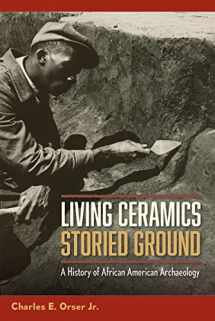
Living Ceramics, Storied Ground: A History of African American Archaeology
Book details
Summary
Description
The role of historical archaeology in the studyof African diaspora history and culture
Exploringthe archaeological study of enslavement and emancipation in the United States, thisbook discusses significant findings, the attitudes and approaches of past researchers,and the development of the field. Living Ceramics, Storied Ground highlightsthe ways historical archaeology can contribute to the study of African diasporahistory and culture, as much of the daily life of enslaved people was notcaptured through written records but is evidenced in the materials and objectsleft behind.
Includingdebates about cultural survivals in the 1920s, efforts to find "Africanisms" atKingsley plantation in the 1960s, and the realization--as late as the 1970s--thatcolonoware pottery was created by enslaved people, Charles Orser looks at the influentialand often mistaken ideas of prominent anthropologists, archaeologists, andhistorians. Extending to the present, Orser describes how archaeology betterrecognizes and appreciates the variety and richness of African American cultureduring slavery, due in large part to the Black archaeologists, past andpresent, who have worked to counter racism in the field.
Whileacknowledging the colonial legacy of archaeology, Charles Orser outlines theways the discipline has benefitted by adopting antiracist principles andpartnerships with descendant communities. This book points to the contributionsof excavators and researchers whose roles have been overlooked and anticipates excitingfuture work in African American archaeology.
Publicationof this work made possible by a Sustaining the Humanities through the AmericanRescue Plan grant from the National Endowment for the Humanities.


We would LOVE it if you could help us and other readers by reviewing the book
Book review



